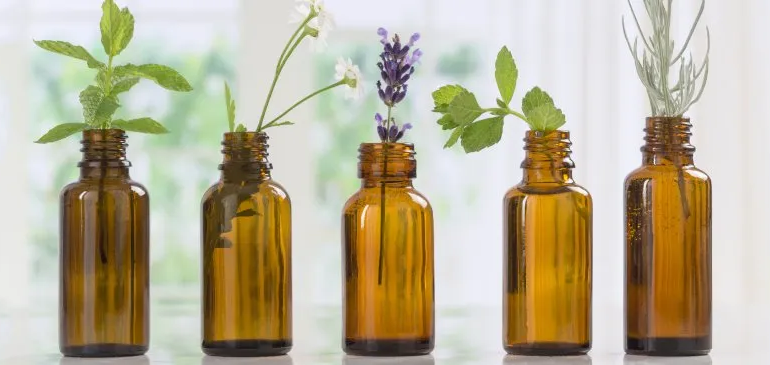
Avellon Williams
TRINIDAD AND TOBAGO- Essential oils are made from flower, herb, and tree parts, such as bark, roots, peels, and petals. When a plant’s essence is extracted, it becomes a plant’s essential oil. Essence cells give plants their fragrant scent.
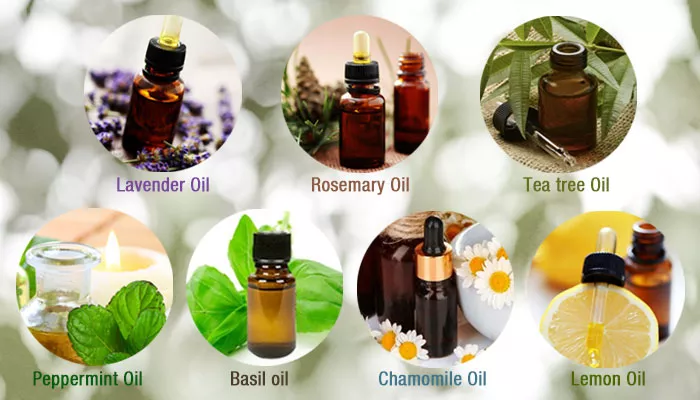
The best use for essential oils isn’t just to diffuse them so you can unwind while taking a bath after a long day – they’re also good stress busters. We use them for cleansing, moisturizing, and toning our skin, body, face, and hair at home. However, they also rank high on the list of things that can alleviate stress.
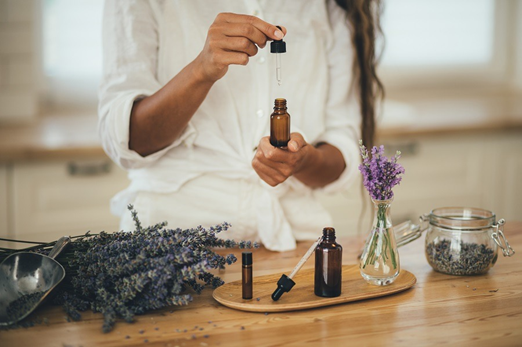
Aromatherapy treatments significantly reduced stress levels in adolescents, according to a study published in 2009, The Effects of Aromatherapy on Stress and Stress Responses in Adolescents. By simply inhaling, individuals felt relaxed, rejuvenated, and more emotionally at ease.
Similarly, in 2022, a study (Effects of Aromatherapy on the Physical and Mental Health and Pressure of Middle-Aged and Elderly…) revealed positive effects of aromatherapy on the physical and mental health of the elderly and middle-aged, with lavender, bergamot, and marjoram essential oil blend reducing stress effectively.
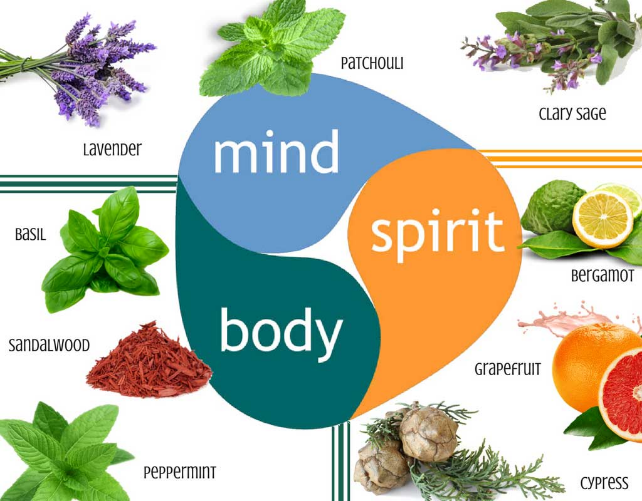
According to aesthetician Nicola Meredith, “Essential oils like lavender, eucalyptus, and peppermint should always be in your home.”
In addition to these, she recommends the following to relieve stress:
Rosemary oil
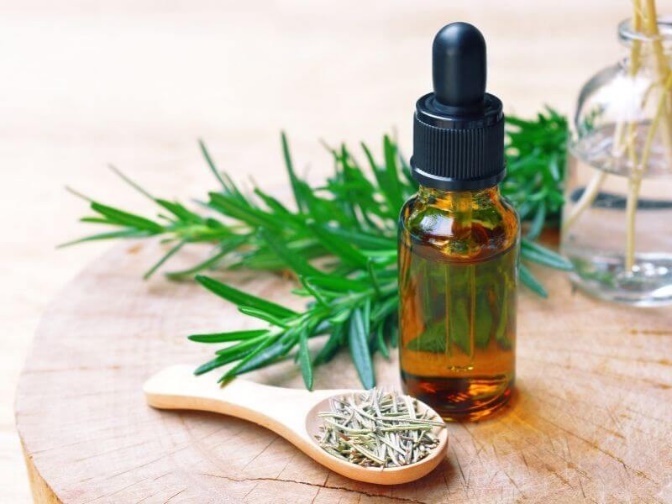
Distilled from the flower, rosemary essential oil not only creates a gentle floral aroma but is also a great stress- reliever and a good remedy for exhaustion.
Based on a 2009 study by Trusted Source, rosemary oil caused a significant drop in breathing rate, oxygen saturation in the blood, and systolic blood pressure when applied topically. As a result of the oil treatment, participants reported feeling more relaxed.
In a 2014 study by Trusted Source, rosemary oil was found to reduce anxiety during delivery in over 100 pregnant women.
Ylang Ylang Oil
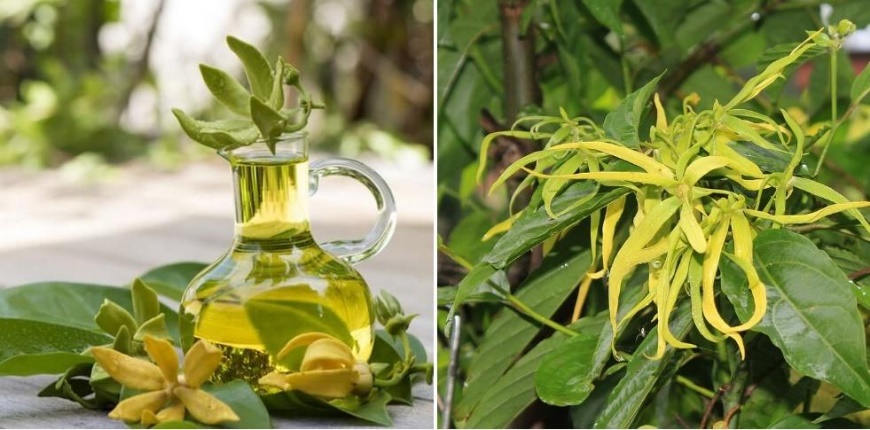
In its flower form, Ylang ylang is a yellow, star-shaped flower growing on the Cananga tree (Cananga odorata). Trees can be found in countries such as India, the Philippines, Malaysia, Indonesia, and Australia.
Studies have shown that ylang ylang essential oil relieves anxiety in patient care settings. This oil is also said to ease depression, anxiety, and stress. When you need to rest and relax, but don’t need sedative effects, this sweet floral aroma is perfect.
Chamomile oil
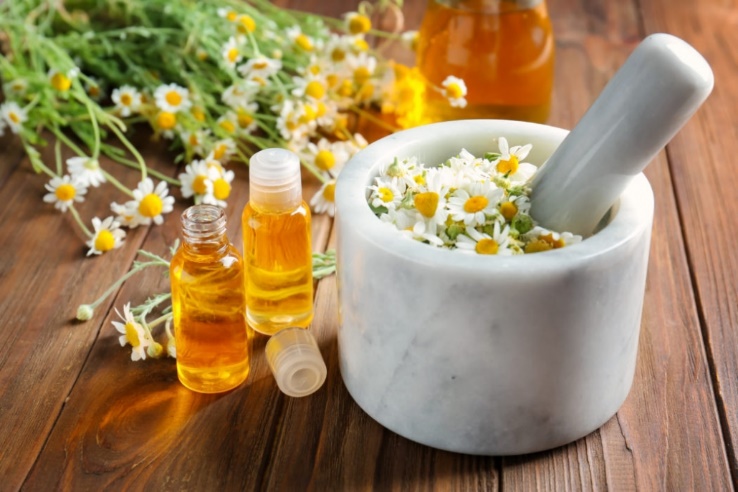
Chamomile is a popular ingredient in tea that is known for its sedative properties. Sleep can be improved with the relaxation properties of chamomile essential oil.
For an amazing aromatherapy experience, add a few drops to your diffuser, shower, or bath. Aside from helping you reduce anxiety; Chamomile essential oil has some solid research behind it. A variety of ailments and conditions have been treated with it throughout history, including digestive upset, anxiety, wounds, pain, and insomnia.
According to a study conducted by Trusted Source in 2017, chamomile extract reduced symptoms of moderate to severe generalized anxiety disorder in 58.1 percent of participants after 8 weeks.
Based on the findings of a small study conducted by Trusted Source published in 2018, chamomile treatment reduced anxiety symptoms and increased morning cortisol levels.
You can easily experience the calming effects of Roman chamomile essential oil by diffusing or applying a few drops before going to bed.
Lemongrass oil
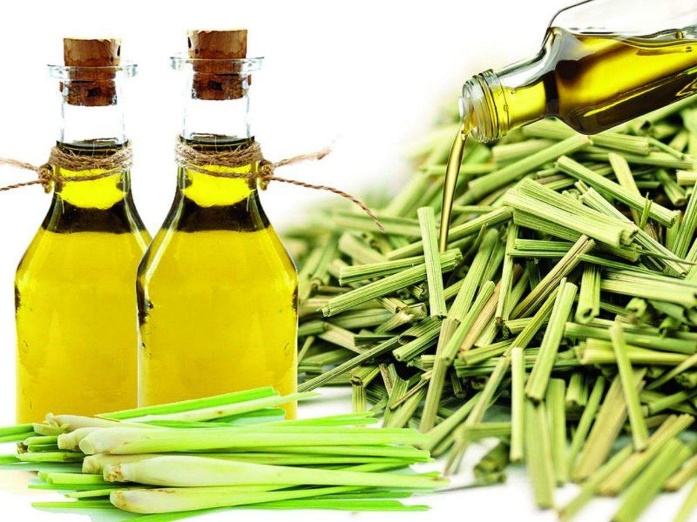
There’s nothing better than the smell of lemongrass – it’s so soothing and calm. Simply smelling this will instantly improve your mood, whether you’re using it for massages or beauty treatments.
According to a 2018 study by Trusted Source, lemongrass essential oil inhibits the production of dopamine in mice. Furthermore, lemongrass oil significantly improved students’ attention, concentration, cognitive performance, and mood during the learning process, according to a 2005 study.
Peppermint oil
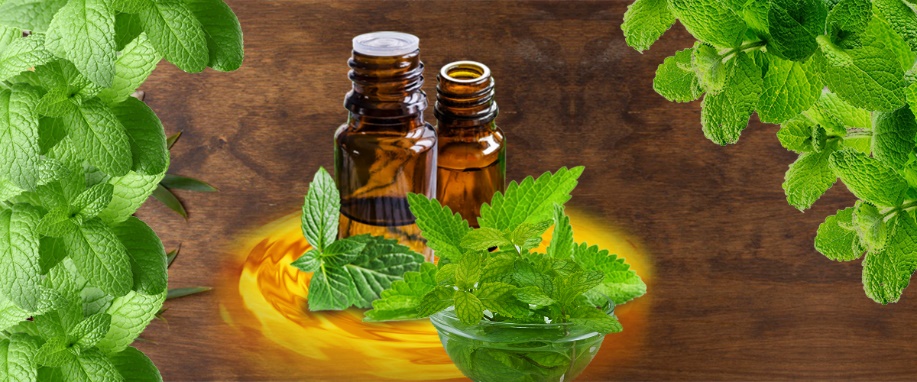
An aromatic mint herb, peppermint is a member of the mint family. A hybrid mint derived from spearmint and watermint. The plant grows naturally in North America and Europe.
A variety of disorders can be treated with peppermint oil derived from its leaves, including colds, headaches, migraines, and congestion.
With a sharp, refreshing odor and a similar taste, it has a fresh, cool feeling. Among peppermint oil’s chemical components are menthol and menthone. The list does not end here, however.
Several studies involving peppermint, menthol, and caraway were summarized in the 2019 review by Trusted Source. This combination treatment appears to be effective in relieving symptoms associated with functional dyspepsia.
In another review of studies of herbal remedies for GI conditions in children and adolescents, peppermint oil reduced the duration, frequency, and severity of abdominal pain compared to a placebo.
The soothing scent of peppermint diffuser oil will do you wonders.
Lavender oil
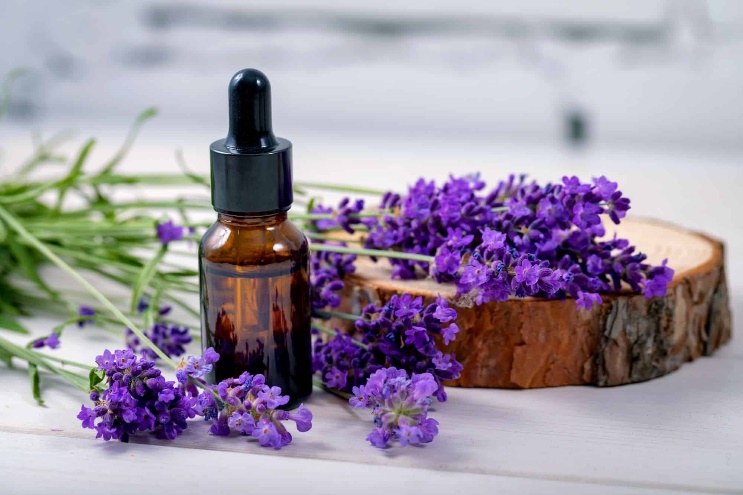
There is no doubt that lavender is one of the most popular essential oils, both among beginners and aromatherapy experts. The benefits of lavender oil go beyond treating skin issues, as it is also helpful for relieving anxiety, assisting in sleep, and relaxing. Consequently, it has a calming effect and is beneficial for mental health.
It has been shown that aromatherapy using a 3 percent lavender oil spray on clothing reduces workplace stress, according to a 2013 study by Trusted Source.
The lavender plant emits a floral and aromatic scent and is used in many ways. Adding a few drops to a diffuser, applying directly to the skin, or mixing it with other oils and products are all possible.

Whether you’re looking for a remedy for anxiety, a way to improve your sleep, or a way to balance your mood while meditating, there are a variety of essential oils that have stress-reducing properties.
Essential oils may help you relax after a stressful day when massaged into your skin or added to a bath. However, consult your healthcare provider before using essential oils for any condition.
Which essential oil do you use and for what purpose?




